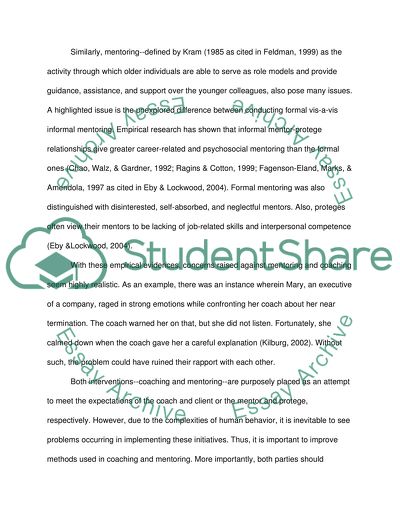Failure/Negative Outcomes of Coaching/Mentoring Coursework. Retrieved from https://studentshare.org/miscellaneous/1587712-failurenegative-outcomes-of-coachingmentoring
Failure/Negative Outcomes of Coaching/Mentoring Coursework. https://studentshare.org/miscellaneous/1587712-failurenegative-outcomes-of-coachingmentoring.


